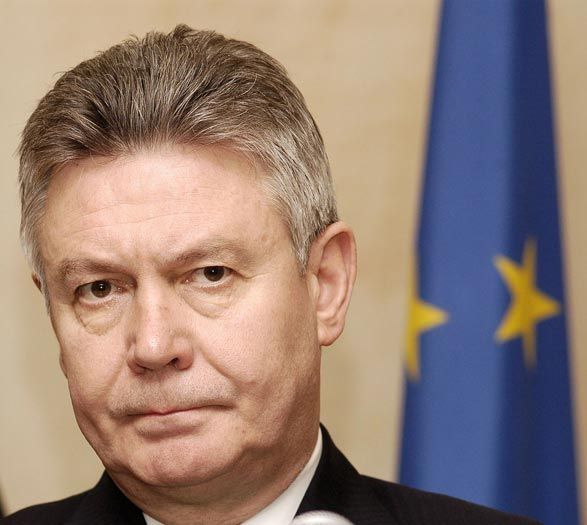On 4 July the European Parliament voted against Europe adopting ACTA, 478 MEPS voted against ACTA and only 39 voted for ACTA (there were 165 abstentions). Green and liberal MEP’s voted against ACTA as did many conservative MEP’s.
In a previous post I pointed to some of the problems with ACTA including the the collateral damage is threatened for the poorest people in the world. South Africans concerned interested in development identified two salient problems with ACTA, the potential increased seizure of medicines in transit through ACTA signatory countries and the way in which ACTA negotiating countries have abandoned multilateral institutions like the World Trade Organisation.
Now that ACTA has firmly rejected in Europe what does that mean for South Africa?
One consequence is that ACTA will no longer be the primary vehicle through which the Enforcement Agenda is driven. Instead the Enforcement Agenda is already being pursued in other fora such as the World Health Organization and regional trade agreement such a s the Trans Pacific Partnership (TPP) and the EU-Canada bi-lateral trade agreement. The likelihood of South Africa being forced to sign an ACTA text without an opportunity for negotiating the text is diminished. which it did not negotiate.
ACTA itself may not come in to force. ACTA was negotiated by trade officials of Australia, Canada, the European Union, Japan, Mexico,Morocco, New Zealand, South Korea, Switzerland and the United States. Six countries would have to ratify the agreement for it to come into force, although an agreement without participation of Europe is likely to prove unimportant. On 27 June the Joint Standing Committee on Treaties of the Australian House of the Australian Parliament refused to recommend ratification and instead suggested that an independent and transparent cost/benefit analysis of the agreement should precede any vote by Parliament. In the 4th of July vote the European Union chose not to ratify ACTA. On 9 May 2012 Switzerland announced that it would wait before deciding whether to ratify ACTA. The European rejection is likely to result in a Swiss rejection. The Mexican Senate passed a resolution against ACTA as far back as June 2011 suggesting that ratification will not take place easily there. There are still sufficient countries to potentially ratify the agreement; Japan, Canada, New Zealand, Morocco, Singapore, South Korea and the United States. There have been anti-ACTA protests in Japan. With the exception of Morocco those countries are either negotiation, observing or interested in the TPP.
Seizures of generic medicines in transit will likely continue. Before finalization of ACTA there have been incidents in which the German customs authorities seized generic medicines in transit through German, en route from India to other developing countries for alleged trademark infringement. It turned out that the medicines did not infringe a trademark, even in Germany where the medicines were not going to be distributed anyway, but that the Germany customs officials couldn’t tell the difference between the pharmacological name of the medicines and a trademark. ACTA would have multiplied these incidents. If South Africa wants to ensure access to medicines it will have to support India and Brazil as they challenge these threats to global free trade in pharmaceuticals. However political support for unilateral seizures by customs officials in OECD countries is likely to erode at least in Europe.
The defeat of ACTA in Europe, following on the defeat the proposed PIPA in the US Congress in January this year are both indications that intellectual property issues have become mainstream political issues in the US and Europe.Whether growing public dissatisfaction with the power of industry lobbyists at home will inhibit developed country trade representatives from pressurising developing countries to spend public resources on enforcement remains to be seen. The public discourse around intellectual property law is beginning to mature and increasingly sophisticated analysis appear in the mainstream press.
Unfortunately with rare and merciful exceptions that is not the case in South Africa. Even the media reports of a resounding democratic rejection of ACTA is couched in the narrative advanced by the industry lobbyists responsible for ACTA. One example is the report in Business Live which characterises ACTA as a global agreement. It is not, the trade officials who came up with the agreement decided that it wasn’t going to be be open to China, India and Brazil, let alone African countries, to participate. Instead it was intended that ACTA would be imposed on developing countries when the text was set without giving them an opportunity to reply. The article characterizes the controversy around ACTA as “a two-year battle between legislators who supported the Anti-Counterfeiting Trade Agreement and (ACTA) and it’s largely young, digitally savvy opponents”. The officials who negotiated ACTA were not legislators, they were unelected trade officials who chose to negotiate a secret treaty and then present it to the actual legislators as a take it or leave it package.
South African media analysis of intellectual property defaults far too easily to a sing;e narrative that digital technology should be viewed primarily as a problem since it disputants existing businesses models, which is expressed primarily through morally laden fuming against “pirates”. What is missing is a sense that intellectual property is a utilitarian instrument to encourage innovation and thus subject to assessment whether it is encouraging or inhibiting innovation.




